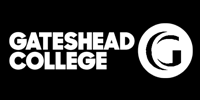In The Loop: Testing Times For Drugs Policies?
Drug safety charity The Loop is calling for major reforms to UK drug policy following an increase in drug-related deaths in night clubs.

The #TimeToTest campaign and its accompanying ‘Night Lives’ report illustrates that drug-related deaths and hospital admissions have risen sharply in recent years, despite drug usage rates remaining fairly static. There were 63 ecstasy-related deaths in England and Wales in 2016, according to the report, up from ten in 2010. Meanwhile, cocaine-related deaths were up to 371 in 2016, from 112 in 2011. In Scotland during the same period, they were up from 36 to 123.
Why is this? The report, which is jointly published by The Loop, drug policy think tank Volteface, Durham University and The All Party Parliamentary Group for Drug Policy Reform claims that the Government has moved its drug policy and resources away from harm prevention. As a result, venues have become scared of losing their licences, adopting ‘zero tolerance’ policies that leave them ill-equipped to act effectively when something does go wrong. In addition, the strength of certain illegal drugs on the market has increased, creating a perfect storm in which drug taking at bars, nightclubs and festivals has become more dangerous.
During the six-year period from 2010-2016, the amount of MDMA in the average ecstasy pill has increased by around five times, while the purity of cocaine has drastically increased, up to an average of 80%.
The report sets out a number of recommendations, including providing drug testing services in districts with a strong night time industry, alongside drug awareness training for venue and bar staff. It also recommends the launch of an independent information service to reduce drug-related harm, and the wider adoption of pragmatic harm reduction drug safety policies already introduced at several UK festivals.
Co-author of the report and Director of The Loop Fiona Measham said: “UK night life makes a vital contribution to our economic and cultural life yet we have reached an impasse. Clubs risk closure if there is a drug-related death but they also risk closure if they attempt to introduce harm reduction measures”.
Measham continued: “By contrast, UK festivals have been introducing evidence-based and effective measures to address the growing drug-related problems faced in the UK”, she goes on. “Drawing on festival drug policy and practice, this report makes key recommendations to bolster our night time economy and to protect the customers and venues within them”.
The Loop is already in talks with local authorities to provide drug testing in some town and city centres as introduced at some festivals so that people know the type of drug and level of potency they have purchased.
The Government will no doubt continue to bury its head in the sand and bleat on about drugs destroying communities but organisations such as The Loop are actually seeking to tackle the problem directly with pragmatic solutions that enable people to make better informed choices, with a focus on harm reduction.
Source:
During the six-year period from 2010-2016, the amount of MDMA in the average ecstasy pill has increased by around five times, while the purity of cocaine has drastically increased, up to an average of 80%.
Address
Coronation House, 65 Quayside, Newcastle Upon Tyne, NE1 3DE
Telephone
07955289085
Connect with Generator
© Generator 2025 - All rights reserved.
Delivered with Cargo Creative




















